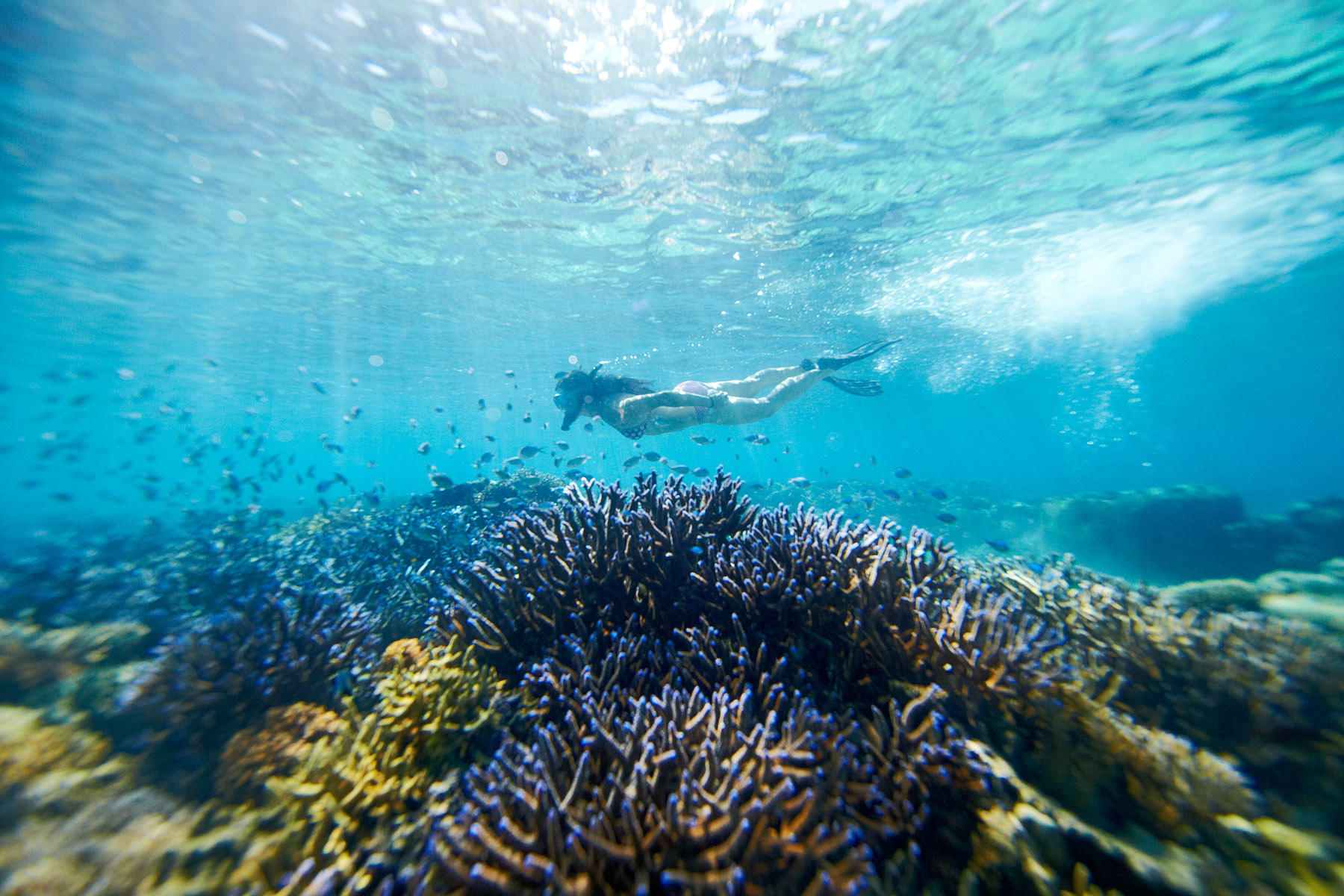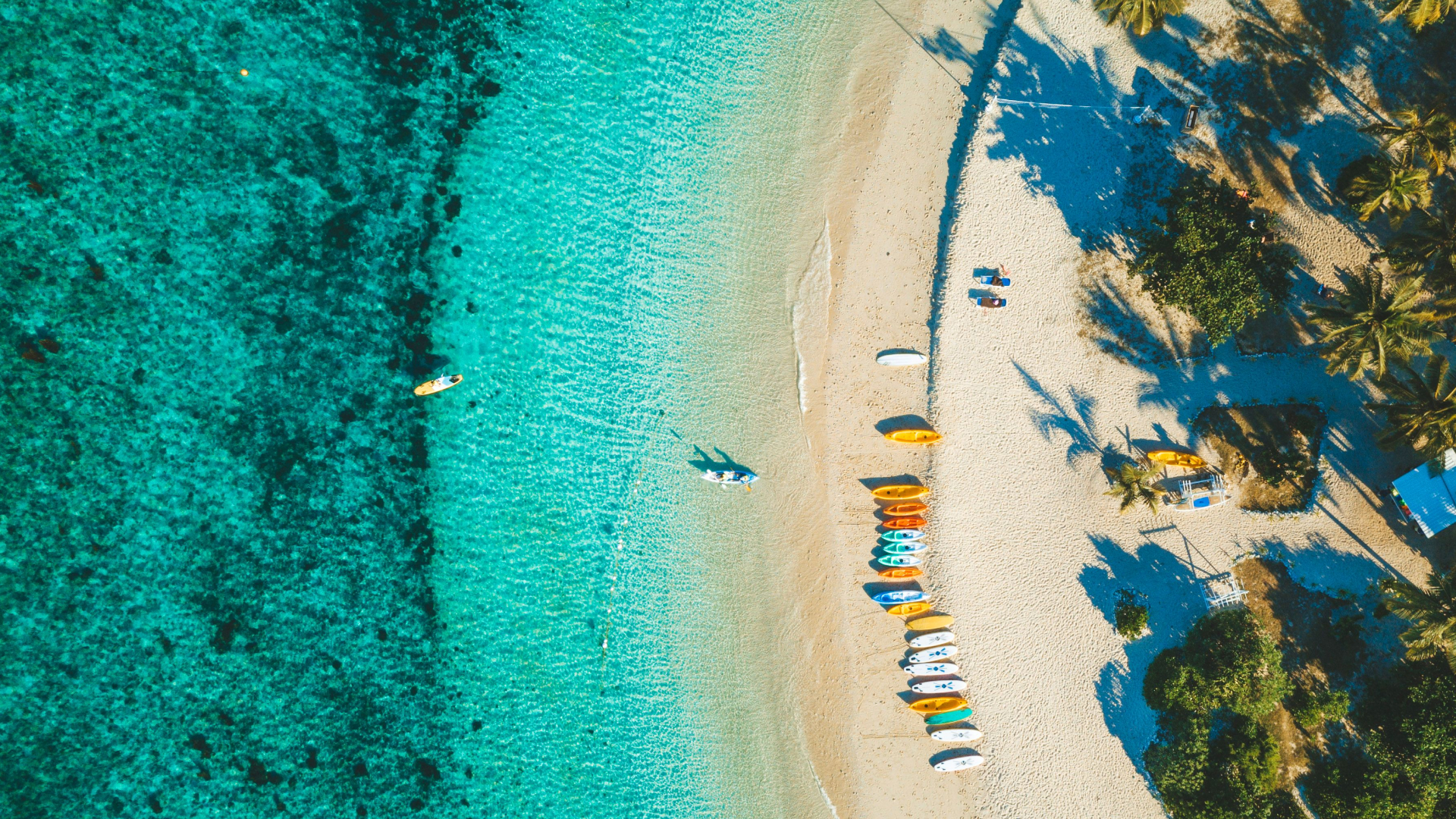Supporting Fiji’s Islands
At South Sea Cruises, we are Fijian and our people are Fijian. We love our country with a passion, which is why we operate a business that showcases its beauty to tourists. We believe the destinations and culture of the islanders are the most important aspects of our company and we want to ensure these gems of the South Pacific will be preserved for all to enjoy today and tomorrow. Two organizations we support that make a difference in Fiji are Vinaka Fiji and the Mamanuca Environment Society.
The Mamanuca Environment Society
South Sea Cruises is a member of the Mamanuca Environment Society which was created in 2003 out of growing concern for the fragile marine and terrestrial ecosystems in this region. It brings local village communities, tourism operators, government, and non-governmental organizations together to collaborate and work towards preserving and protecting this area with initiatives to raise awareness and promote sound environmental practices for the benefit of future generations of communities living, working, and visiting the Mamanuca group.
South Sea Cruises works in partnership with the Mamanuca Environment Society to develop sustainable environmental practices and projects. For more information visit mesfiji.org.

Vinaka Fiji
The Yasawa Islands at first glance are ‘paradise’ and it’s this perfection that most travellers experience. However, to the people who live in remote island villages in the Yasawas, paradise is far from reality. Some of these small communities live without the basic needs of fresh water, power, education, and health facilities.
Founded in 2010 by South Sea Cruises Group, Vinaka Fiji is a charitable organization that gives back to the remote villages and communities of the Yasawa Islands and is how South Sea Cruises says ‘vinaka’ (thank you in Fijian) for creating and maintaining one of the world’s truly special destinations.
The fundraising programmes and work done by Vinaka Fiji help to improve the basic needs and amenities missing from village life in the Yasawas. If you wish to help, you can make an online donation, or for more information on voluntourism opportunities in the islands visit www.vinakafiji.org.
Some of the activities and projects in place with the Vinaka Fiji team are detailed below:
Planting Magrove Nurseries
Mangrove forests are crucial to reef productivity, with fish and invertebrates relying on these areas as safe zones for their offspring. The shallow, tranquil waters around mangroves offer plenty of protection from predators and rough weather. With such widespread root systems, mangroves can steady shorelines, minimise erosion, and even accrete land in the form of mudflats and wetlands because they collect loose sediments.
Vinaka Fiji plants mangroves in a nursery at Barefoot Manta Resort and once they’ve grown six leaves they’re transplanted to areas where mangroves have been damaged or destroyed.

Manta Ray Study
Manta rays visit the offshore channel of Nanuya Balavu and Drawaqa Islands every year between May and October. They feed on plankton, clean the marine environment and carry out courtship behaviour while in the area. The Marine Conservation Team and a representative of the Manta Trust have set up an official identification and behavioral study to monitor these captivating sea inhabitants.
The ongoing study will establish if the same population is returning each year, how many individuals are using this area, and if their behaviour is consistent with other manta rays around the world among other things.

Coral Planting
Coral is very slow-growing and easily damaged both by human interaction and weather events. The long-term sustainability of the coral reefs in Fiji is dependent on coral planting projects which are underway throughout the region.
First, tiny fragments of coral are gathered from the reef and rooted onto a metal framework. They’re left to mature for approximately six months and then relocated onto any damaged zones of the reef.
Extensive rejuvenation projects are underway at South Sea Island and Malamala Beach Club.

Crown-of-Thorn Monitoring
The Crown-of-Thorns Seastar (COTS) is a predatory starfish that is a native of coral reefs. It preys on the polyps of coral and has an important role on the reef by pruning fast-developing corals, allowing room for other coral species to colonise and grow.
However, in abnormally high populations they can harm a coral reef. Many areas in Fiji are currently facing a COTS infestation.
Vinaka Fiji’s Marine Conservation & Research team monitors COTS numbers methodically. By keeping an eye on the reef, they can react quickly if a problem arises such as unsustainable numbers. They can also use the information gathered to share knowledge about COTS outbreaks with interested parties.
Reef Check Fiji
Checks are undertaken to:
- Compare sites within and without Marine Protected Areas
- Evaluate the relative abundance and size distribution of target species
- Establish how newly proposed protected areas will react to recovery efforts
- Identify if the reef requires support
- Provide valuable information into general patterns and coral reef history
Sea Cucumber Breeding
Sea cucumbers are fascinating creatures and play a vital role in the ecosystem. Like earthworms, they recycle the nutrients in the sediment that would otherwise be lost to the rest of the food chain.
Despite their ungainly appearance, they’ve made their way onto many menus around the world. Such large demand has led to severe population decline. The Marine Conservation team at Vinaka Fiji hopes to reduce fishing pressures on the ecosystem and minimise loss of life by setting up a breeding program. Three species have also been selected to investigate the possibilities of asexual and sexual reproduction.


